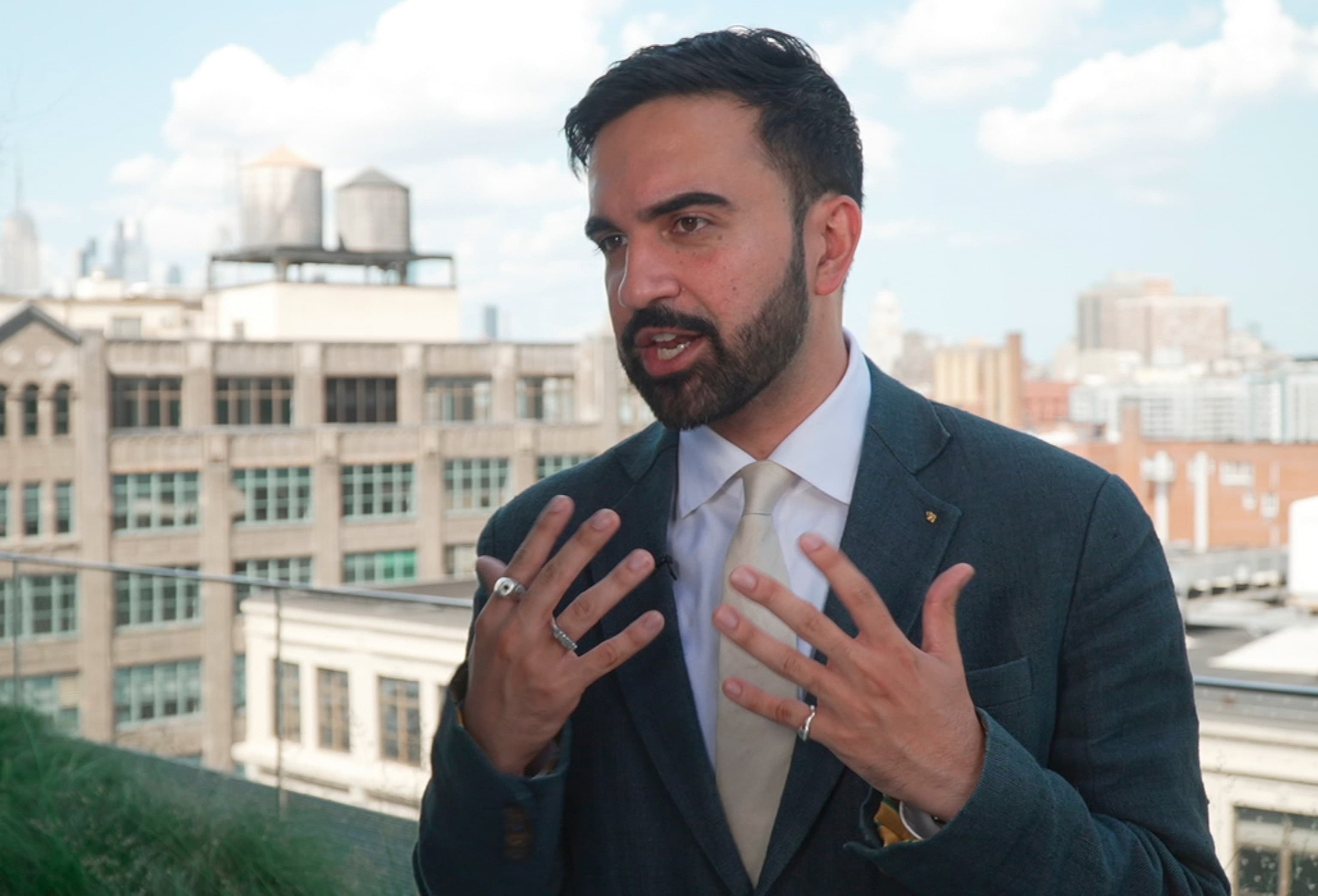Zohran Mamdani Secures Democratic Mayoral Nomination with 43.5% of Primary Vote, Poised to Be City's First Muslim Mayor

New York City – Zohran Mamdani, a 33-year-old state assemblyman, has emerged as the presumptive Democratic nominee for New York City Mayor, securing 43.5% of the primary vote against former Governor Andrew Cuomo's 36.4%. His victory marks a significant upset, propelled by a robust grassroots campaign centered on progressive policies aimed at addressing the city's affordability crisis. Mamdani, a democratic socialist, is now poised to become the city's first Muslim and South Asian mayor if he wins the general election in November.
Mamdani's platform emphasizes substantial reforms, including proposals for free city bus services, rent freezes for stabilized apartments, and the establishment of city-owned grocery stores to combat food insecurity. Born in Kampala, Uganda, and raised in New York, Mamdani has leveraged his background and identity to connect with diverse communities, often campaigning in multiple languages and utilizing social media to amplify his message. His campaign garnered endorsements from prominent progressive figures like Senator Bernie Sanders and Representative Alexandria Ocasio-Cortez.
His political stances, particularly on international issues, have drawn considerable attention and criticism. Mamdani has been a vocal critic of Israel, accusing it of committing "genocide" and being an "apartheid state," and has expressed support for the Boycott, Divestment, and Sanctions (BDS) movement. His refusal to condemn the phrase "globalize the intifada" during an interview sparked controversy, though he clarified that he views the term as a call for solidarity with oppressed people, not violence.
However, Mamdani faces sharp critiques regarding his truthfulness and perceived manipulation of identity politics. In a recent social media post, Indu Viswanathan, a self-described lifelong liberal New Yorker, strongly questioned Mamdani's integrity, stating, > "He is not a truthful voice of the marginalized, although this is exactly the story he has crafted to rise to power." Viswanathan specifically cited Mamdani's claim that "there are no more Muslims left in Gujarat, India," calling it a "deeply irresponsible falsehood" given that Gujarat is home to over 7 million Muslims.
Viswanathan further alleged that Mamdani's narrative relies on erasing facts and demonizing Hindus, highlighting that his own father is Gujarati Muslim. The social media post also raised concerns about Mamdani's alleged alignment with "Khalistani separatists," a movement described as violent and targeting Hindus. These accusations suggest a pattern of "narrative manipulation masquerading as moral clarity," according to Viswanathan, who expressed dismay at what she perceives as a distortion of liberal values.
Mamdani's win, fueled by tens of thousands of volunteers and small-dollar donors, has sent ripples through the Democratic establishment, with some leaders expressing concern over his radical positions and potential impact on the party's national brand. Despite these criticisms, his campaign's success underscores a growing demand among New York voters for leaders focused on economic justice and systemic change, even as it navigates complex and often contentious social and political issues.